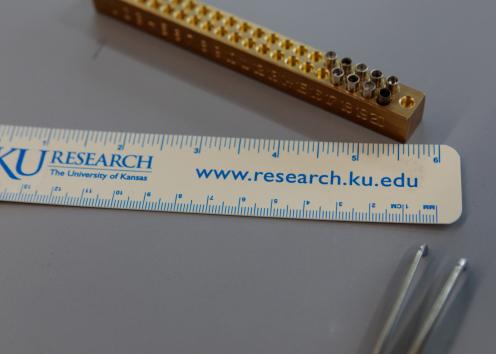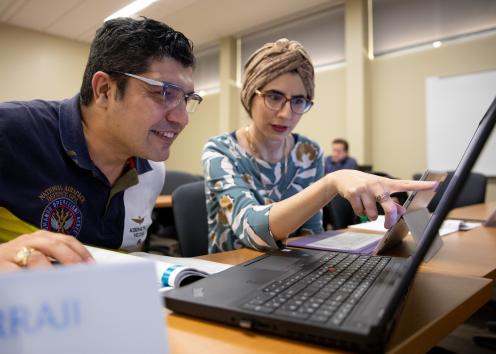Ph.D. in Curriculum & Instruction at KU

Program Overview
The Ph.D. in curriculum and instruction at the University of Kansas emphasizes research and is intended for students who seek a faculty position at a research-intensive university. The focus is on developing expertise in a specific area of study and building research skills to support a line or research over the length of a career in academia. With an expectation of excellence, the knowledge gained in KU's graduate courses will help students become even more effective professionals in the field of education. Full-time faculty who are prominent scholars & expert practitioners.
Concentration Areas
All doctoral students must complete a program that provides a broad understanding of curriculum and instruction as well as a concentration in one of the following areas: culturally responsive pedagogy, foreign language education, gifted and talented education, language arts/English education, literacy education, mathematics education, science education, social studies education, or teachers of English to speakers of other languages (TESOL).
Career Outcomes in Curriculum & Instruction
Students pursue the Ph.D. in curriculum and instruction at KU with varying career goals in mind. Ph.D. students should expect to engage in “co-curricular” activities above and beyond the specific degree requirements appropriate to their career aspirations. These include presenting research at conferences and engaging in internships with policy organizations. The program prepares graduates who are qualified to conduct theoretically grounded, original research on crucial issues in curriculum and instruction. Potential position titles after graduation could include:
- Professor,
- Policy maker,
- Policy analyst,
- Political activist,
- Lobbyist,
- Researcher.
The Ph.D. program does not lead to initial nor advanced educator licensure in the state of Kansas.
Ed.D. vs. Ph.D.
The Ed.D. and Ph.D. programs are typically distinguished by the outcome goals of each program. Either degree (the Ph.D. or the Ed.D.) will allow an individual to teach at a college or university. Both degrees are considered terminal degrees, meaning the highest degree one can achieve in the field of education.
Ed.D. vs. Ph.D.

"I am most grateful for how supportive the faculty are and how the entire department feels like one large family. It is reassuring, especially as a first-generation college student, that I can approach any of our faculty with any questions and be confident they will take the time to answer them fully and guide me to what is in my best interest as an academic."
Statistics
U.S. News & World Report’s “Best Graduate Schools,” 2025-26






